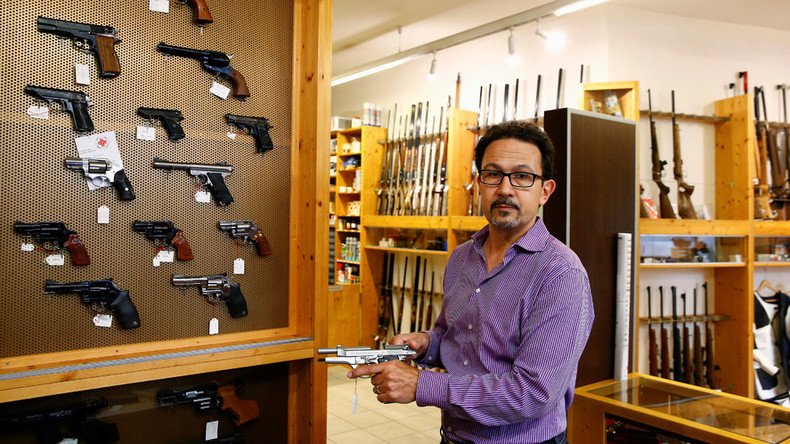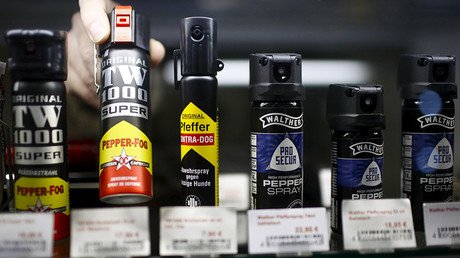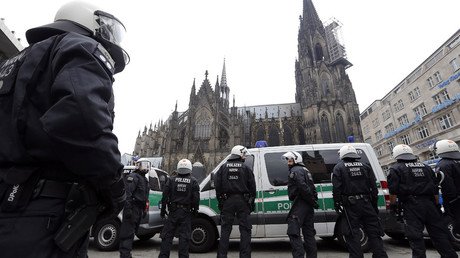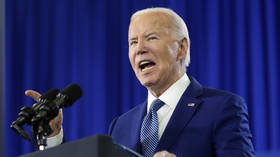More Europeans turning to firearms following terrorist attacks – report

An increasing number of Europeans are turning to firearms and other self-defense weapons to protect themselves, according to a Reuters report. Many have attributed the spike in permits to heightened fears caused by recent terrorist attacks.
Applications for gun permits are climbing in at least three European countries, according to figures cited by Reuters.
In the Czech Republic, the number of gun permit holders grew by almost 6,000 to nearly 300,000 in the first five months of 2016.
The report comes after Czech President Milos Zeman announced he was in favor of residents owning firearms in the wake of the Munich mall shooting in July.
“Citizens should be able to arm themselves...in order to be able to act against these terrorists,” he told TV Nova at the time.
Switzerland has also seen a drastic rise, with all 12 cantons which responded to a Reuters inquiry reporting an increase in gun permit applications in 2015. Interim 2016 figures show a further rise.
Gun sellers in Austria also said that interest in weapons grew after a large number of refugees arrived in the country via the now-closed 'Balkan Route.'
“Fear is very much a driving force,” said Robert Siegert, a gunmaker and the weapons trade spokesman at the Austrian Chamber of Commerce. “That's what we keep hearing from salespeople in shops.”
Although the firearm trend does not seem to be taking place in Germany – the site of a number of recent attacks by terrorist-connected or mentally ill people – residents there are opting for less lethal self-defense weapons such as blank guns and pepper spray. Permits for carrying such devices have risen almost 50 percent.
But the number of Europeans opting for firearms and other self-defense weapons could be even higher, as there is no up-to-date data at the European level. Instead, such numbers must be released by national and regional authorities, and those figures are not always comprehensive or comparable.
Why the rise?
An official reason for the spike in sales has not been published, but some have speculated that recent terrorist attacks in Europe are behind the purchases.
"There's no official explanation for the rise, but in general we see a connection to Europe's terrorist attacks," Hanspeter Kruesi, a police spokesman in the Swiss canton of St. Gallen, told Reuters.
Those thoughts were echoed by Daniel Wyss, who is president of the Swiss weapons dealers' association and runs his own gun store.
"Nobody says directly: I'm buying a gun because of the attacks in Nice or Munich...but the sum of these events has fostered a general feeling of vulnerability," he said.
At the moment, Switzerland relies on tens of thousands of citizen soldiers who store automatic rifles at home, though few ordinary civilians have the right to purchase firearms.
But many people, including Jean-Luc Addor, a parliamentarian and member of the Swiss gun lobby, want that rule to be changed. Addor is aiming to introduce legislation in September to ease gun restrictions.
As for Germany's spike in blank guns and pepper spray, Ingo Meinhard, head of the German association of gunsmiths and specialist gun dealers, said the demand jumped after a string of violent sexual assaults took place in Cologne on New Year's Eve.
The Cologne attacks also led many to express distrust in German authorities, with police drawing heavy criticism for failing to prevent the sexual assaults and facing allegations of a cover-up.
Many in Germany have also criticized Chancellor Angela Merkel for her open-door policy for those fleeing war and persecution, saying it has allowed the country's borders to be “under-protected.”
“...Our federal chancellor, Angela Merkel, opened the German borders. Our borders are under-protected and we don’t know how many people came into the country and we don’t know how many terrorists joined them...” Willy Wimmer, former state secretary of the CDU (German Christian Democratic Party), told RT last month.
But hard figures on whether refugees and migrants actually commit a higher amount of crime than the general population of Europe are hard to come by.
A report from the BKA federal police in Germany – where more than 1 million asylum seekers arrived last year – said refugees committed or attempted to commit about 69,000 crimes in the first quarter of 2016. It did not say how that rate compared with the overall number of crimes committed in the country.
Europe is continuing to tackle the biggest refugee crisis since World War II, with most of the asylum seekers hailing from Syria, where a civil war has claimed the lives of over 250,000 people and displaced 12 million others since 2011, according to UN figures.














